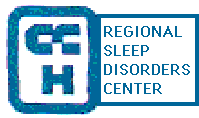What
is sleep apnea?
-Repeated
pauses in breathing (apneas) lasting at least 10 seconds. In
severe cases, hundreds of breathing pauses can occur every night.
-Can
result from two possible basic causes:
--repetitive collapse of the throat, which often--but not always--leads to loud or irregular
snoring and/or gasping sounds (OBSTRUCTIVE SLEEP APNEA or OSA).
--repetitive failure to initiate efforts to breathe (CENTRAL SLEEP APNEA or CSA).
Central sleep apnea can arise from many causes. It afflicts 50% of patients with heart failure! Also, it is frequently found in victims of atrial fibrillation, brain damage (for example, in stroke patients), dementias such as Alzheimer's disease and in the morbidly obese.
CSA also can develop immediately when patients with obstructive sleep apnea are started on treatment with CPAP or bilevel positive airway pressure ("biPAP"). It is vital to understand that this problem (recently termed "COMPLEX SLEEP APNEA " can occur, since it can render treatment with CPAP or bilevel PAP intolerable--and because there now is an excellent treatment for CSA).
--there is a third type of apnea (MIXED SLEEP APNEAS) which begin as central apneas (from lack of any breathing effort). Then, when breathing efforts begin, the upper airway is sucked shut and the second part of the apnea is the result of upper airway obstruction.
Is regular
snoring without pauses in breathing OK?
-Not
necessarily. Some patients must struggle so violently to get
every breath that the resulting dramatic swings in pressure within
their chest can even cause collapse of the left side of their
heart!
This
condition, called UPPER AIRWAY RESISTANCE
SYNDROME (UARS) can cause severe sleepiness. In fact,
one study showed that individuals with UARS are as likely to
fall asleep at the wheel as are patients with full-blown sleep
apnea--to which it may eventually lead.
UARS
often afflicts young women and children of normal body build,
and it frequently does not involve significant snoring!
Many
patients with UARS are misdiagnosed as suffering from narcolepsy
or idiopathic hypersomnia, because this subtle but serious
breathing disorder is readily missed by conventional sleep
center monitoring techniques. Patients with sleepiness seeking
assessment should ensure that the sleep center that they select
for help is capable of doing the special monitoring needed
to detect this readily treated and common disorder.
What
else can go wrong with breathing during sleep?
-Some
people who are quite overweight, who have lung or heart problems,
or who have medical problems that make them breathe too shallowly
(SLEEP-RELATED HYPOVENTILATION) may have repeated serious drops in their oxygen levels during
sleep--even though they may never actually stop breathing. They simply do not breathe deeply enough to maintain good blood oxygen levels,
-CENTRAL SLEEP APNEA refers to repeated failure to initiate efforts to breathe, as noted above.
-Failure to generate adequate breathing effort--whether due to central sleep apnea or sleep-related hypoventilation--can occur without
snoring, breathing pauses or any symptoms...even when severe
to the point of causing progressive heart damage from lack of
oxygen in the blood.
Wouldn't
I know if I stopped breathing in my sleep?
-No
Some patients who have over one hundred pauses in breathing per
hour never wake up with any symptoms!
What
factors increase the risk of having these problems?
-Being
overweight. Obesity is a major risk factor--although some thin
people have severe sleep apnea.
-Nasal congestion or obstruction, "sinus trouble", or allergies.
-Large
tonsils and/or adenoids, having a "crowded throat", large tongue
or small jaw.
-Lung
disease, atrial fibrillation and heart failure.
-Scoliosis
or muscle weakness.
-Sedating
medicines and alcohol.
-Hypothyroidism
and certain other endocrine (hormonal) disorders.
-Brain disorders that affect the control of breathing.
Is sleep
apnea common?
-Yes--extremely
common! It has been found in up to one of every ten men over
age 40 and has been described as more prevalent in men over age
40 than either diabetes or asthma.
-It
also occurs in women and younger age groups.
Click here to continue...
Learn more of the impact of sleep apnea on both health and livelihood.
Click here to contact us.

